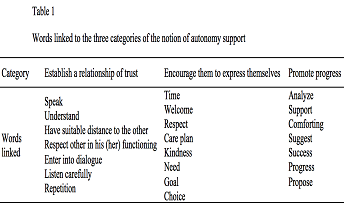
Guillaume Souesme
Francois Rabelais University, France
Title: What is an autonomy supportive environment in geriatric care services for healthcare professionals?
Biography
Biography: Guillaume Souesme
Abstract
Statement of the Problem: Based on Self-Determination Theory (SDT; Deci & Ryan, 1985), autonomy support appears to be a key factor for patients in geriatric care services (GCS) for the satisfaction of the three basic psychological needs of autonomy, competence, and relatedness (Souesme et al., 2016). However, none studies have been conducted with healthcare professionals about “what elements might compose an autonomy-supportive environment?” That is why; it looked interesting to clarify the behaviors
underlying an autonomy-supportive motivational style in GCS.
Methodology & Theoretical Orientation: Four focus groups were used with a semi-structured guide (Patton, 2002) to explore the point of view of healthcare professionals about an autonomy-supportive environment. Twenty-six (n=26) professionals representing all professions working on GCS were recruited. Content qualitative analyses were performed using a software analysis (NVivo 10- QSR International).
Findings: Unlike Reeve (1998), our results based on queries for text analysis highlighted three categories defining the notion of autonomy support in health context. Those categories point out well the importance of the social link between medical staff and patient through the “promotion of progress”, the importance of “establish a relationship of trust”, and the necessity to “encourage them to express themselves”.

Conclusion & Significance: Our results demonstrate that the welcome are crucial to make the stay in GCS positive. Developing a partnership between patients and healthcare professionals could be a successful way to improve the stay in GCS, bring positive psychological and physical outcomes for elderly patients like a better adherence to treatment (Williams et al., 1998), and reduce rehospitalization. We need now to further define the patient’s point of view of an autonomy-supportive environment in order to compare it with healthcare professional’s definition, underlying common and diverging points. This will allow us to make recommendations and propose a training session for professionals to adopt an autonomy-supportive motivational style.
Recent Publications:
- Deci EL, & Ryan RM (1985) Intrinsic motivation and self-determination on human behavior. New-York: Plenum Press.
- Patton MQ (2002) Qualitative research and evaluation methods. Thousand Oaks, CA: Sage Publications Inc.
- Reeve J (1998) Autonomy support as an interpersonal motivating style. Is it teachable? Contemporary Educational Psychology 23:312-330.
- Souesme G, Martinent G, & Ferrand C (2016) Perceived autonomy support, psychological needs satisfaction, depressive symptoms and apathy in French hospitalized older people. Archives of Gerontology and Geriatrics 65:70-78.
- Williams GC, Rodin GC, Ryan RM, Grolnick WS, & Deci EL (1998) Autonomous regulation and long-term medication adherence in adult outpatients. Health Psychology 17(3):269-276.


